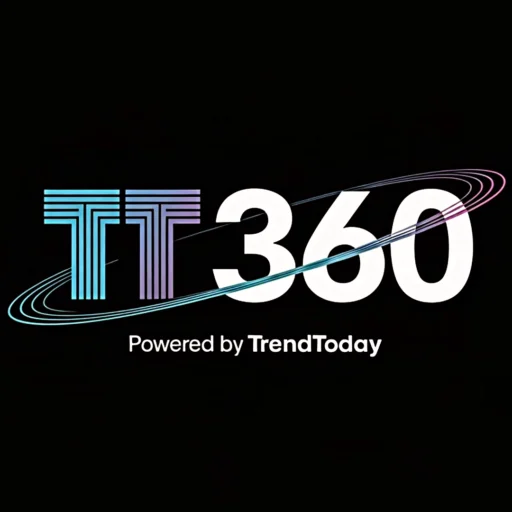Protecting Citizens’ Identity with Copyright Over Face and Voice
Denmark’s Deepfake Law: Denmark has stepped forward with a pioneering law for deep fake AI, Videos, and images.
In a world where AI can mimic your Voice or swap your face in videos, it is enough to convince
your family and friends. But Denmark has changed the game. In June 2025, the Danish Ministry of Culture unveiled plans to improve its copyright regulations to give ownership rights over their likenesses. If a deepfake uses your identity without asking for your permission, it could be legally off limits.
What is Denmark proposing?
On June 26, Culture Minister Jakob Engel-Schmidt announced a plan to make it illegal to share AI-generated deepfakes featuring someone’s appearance or voice without agreement .The idea is both simple and revolutionary: treat biometric traits—like your face and voice—as you would a song, photograph, or painting. You own it, and you control its use.
Highlights include:
- Individual control over digital likeness
Every Danish citizen would automatically hold copyright to their voice, face, and body language. No one else can use these traits in AI-generated content without permission. - Protecting performers and artists
The new law ensures that Musicians, artist actors , and speakers, can demand the takedown of unauthorized AI clones of their performance. The celebrities often see their unique voice or style imitated. - Platforms held responsible
If someone flags a deepfake involving you, platforms must act. Under the EU’s Digital Services Act (DSA), ignoring such takedown requests could lead to hefty fines. - Exceptions for creative expression
Satire, parody, and caricature will still be allowed. These forms of expression won’t be swept up in the ban. - Civil compensation—but no prison time
The law isn’t about criminalizing misuse; it empowers individuals to seek civil remedies—like compensation or removal requests—through Denmark’s existing civil code. There are no new criminal penalties for making or sharing deepfakes.
Why now, and why Denmark‘s deepfake law
Artificial Intelligence tools capable of creating reasonable videos and audio are spreading rapidly and so is misinformation. Videos showing people saying things they never actually said can spread in minutes—causing confusion, harming reputations, and even affecting election outcomes.
As Minister Engel‑Schmidt stated: “Technology is developing rapidly, and in the future it will be even more difficult to distinguish reality from fiction in the digital world,” adding that citizens have the right to their own body, voice, and facial features.
Denmark started its six-month administration of the EU Council on July 1, 2025, a role that gives it influence in shaping EU-wide policies.
Creating a legal ownership right over biometric attributes is a first in Europe—and possibly the world.
Background and timeline of Denmark’s deepfake law
The proposal enjoys broad, cross-party support, with major parties—Social Democrats, Venstre (Liberals), Moderates, and others—lining up behind it. Public consultation was underway in early July, followed by a parliamentary debate expected later in the year . If all goes smoothly, the law could be officially enacted by late 2025 or early 2026.
A legal and cultural precedent
Denmark’s approach mixes elements from different legal traditions:
- France: In France use to fines and prison terms for criminalize non- consensual deepfakeing sharing (including pornographic version)
- UK: Leveraging its Online Safety and Sexual Offenses Acts to target sexual content deepfakes, with up to two years in prison for offenders.
- EU AI Act: Requires labeling of AI-generated content and transparency from platforms.
Denmark’s copyright-based framework is unique—it grants control and legal strength to individuals themselves, not just criminal penalties or platform responsibilities . It recognizes that your face or voice is more than privacy—it’s now creative property.
Limitations & challenges
The content hosted outside Denmark ,No Law is perfect might still be reachable,leaving victims with few options The law’s success depends on how well the EU’s Digital Services Act works and how much tech companies cooperate. Also, figuring out what’s okay as satire or free speech will need careful thought by judges.
Why this matters globally
- Empowering legal tools
Individuals gain direct legal standing to challenge misuse of their likeness—something many countries lack today. - Protecting democracy
By tackling deepfakes, Denmark aims to curb misinformation that can erode public trust in elections and institutions. - Influence across Europe
Holding the rotating EU presidency, Denmark hopes to champion similar laws across the bloc . - Setting a standard for others
As generative AI becomes pervasive, Denmark’s approach might serve as a template for countries seeking to protect identity in the digital era.
What happens next with Denmark’s deepfake law?
- Public consultation (summer 2025): Gathering feedback from citizens, tech firms, and civil society.
- Parliamentary debate and vote (autumn–winter 2025): Culminating in final approval.
- Implementation (late 2025–early 2026): Platforms, legal systems, and individuals prepare for the new reality.
During this period, debates will intensify around definitions:
- What qualifies as a “realistic digital imitation”?
- Who decides if a deepfake is satirical or harmful?
- How fast should platforms respond to takedown requests?
In everyday terms
Imagine scrolling through social media and seeing a video of yourself giving a speech you never made. Under Denmark’s law, you can ask for it to be removed and possibly seek compensation—without needing a separate privacy or defamation lawsuit. It’s your face, your voice, your rights—and now they’re legally protected.
A European first—and possibly the world’s
Denmark is leading a transformative shift: recognizing personal identity as copyrightable content. If successful, this could ripple through the EU and beyond, influencing digital identity laws worldwide.
Final Thoughts For Denmark deepfake Law
In the battle against AI-driven misinformation, Denmark is taking a proactive, legal-first stance. By embedding identity protection within copyright law, Copenhagen is offering more than just a shield—it’s offering ownership. The implications for artists, politicians, and everyday citizens are profound: from creative freedom to democracy itself, this law might just redefine how we think about digital selves.
Updated By Trendtoday360







Leave a Reply